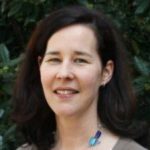The Challenge of Household Air Pollution in Sub-Saharan Africa: Pathways to Scaling-up Clean(er) Cooking
Posted: 1/16/2018 ()

Pamela Jagger, Department of Public Policy, UNC Chapel Hill
Co-Sponsor(s):
Daniel J. Evans School of Public Policy and Governance
This week, CSDE and the Daniel J. Evans School of Public Policy and Governance are bringing Pamela Jagger to UW to discuss approaches to promoting clean cooking in Sub-Saharan Africa.
Globally between 3 and 4 billion people are affected by household air pollution (HAP) from cooking and heating with solid fuels (e.g., firewood and charcoal) and traditional stoves, with women and children in developing countries disproportionately burdened. Over 4.3 million deaths annually are attributed to HAP, the leading environmental health risk factor for morbidity and mortality. In addition to global health burden, cooking with solid fuels contributes to global and regional climate change, environmental degradation, and constrains human well-being. The pathway to transitioning households in sub-Saharan Africa to clean cooking is complex and often severely hindered by missing markets for clean fuels (e.g., electricity and liquid petroleum gas) and improved cooking technologies. As a result, donors, governments, and private sector firms are experimenting with a range of biomass centered policies and programs to promote clean(er) household energy systems. This presentation will review the scope and scale of the challenge of HAP in sub-Saharan Africa, consider what biomass based clean(er) cooking systems can deliver for health, climate, environment, and human welfare, and present findings on adoption and impacts from a clean cooking impact evaluation study in Rwanda. We will also discuss our ongoing impact evaluation of a novel cleaner cooking program which leverages the targeting mechanism of the Government of Malawi social cash transfer program to improve energy access for ultra-poor households.
Date: 01/19/2018
Time: 12:30-1:30 PM
Location: 121 Raitt Hall